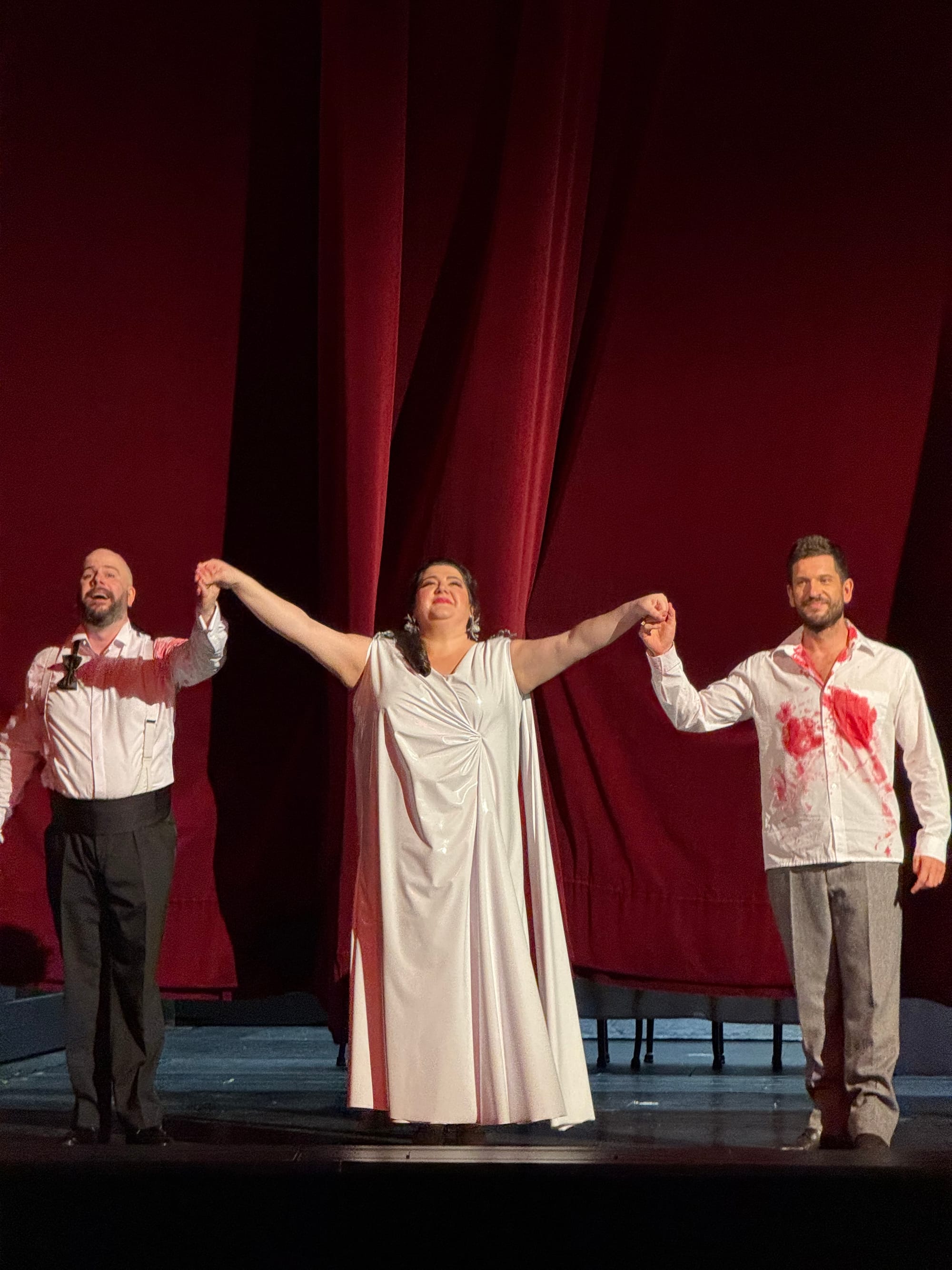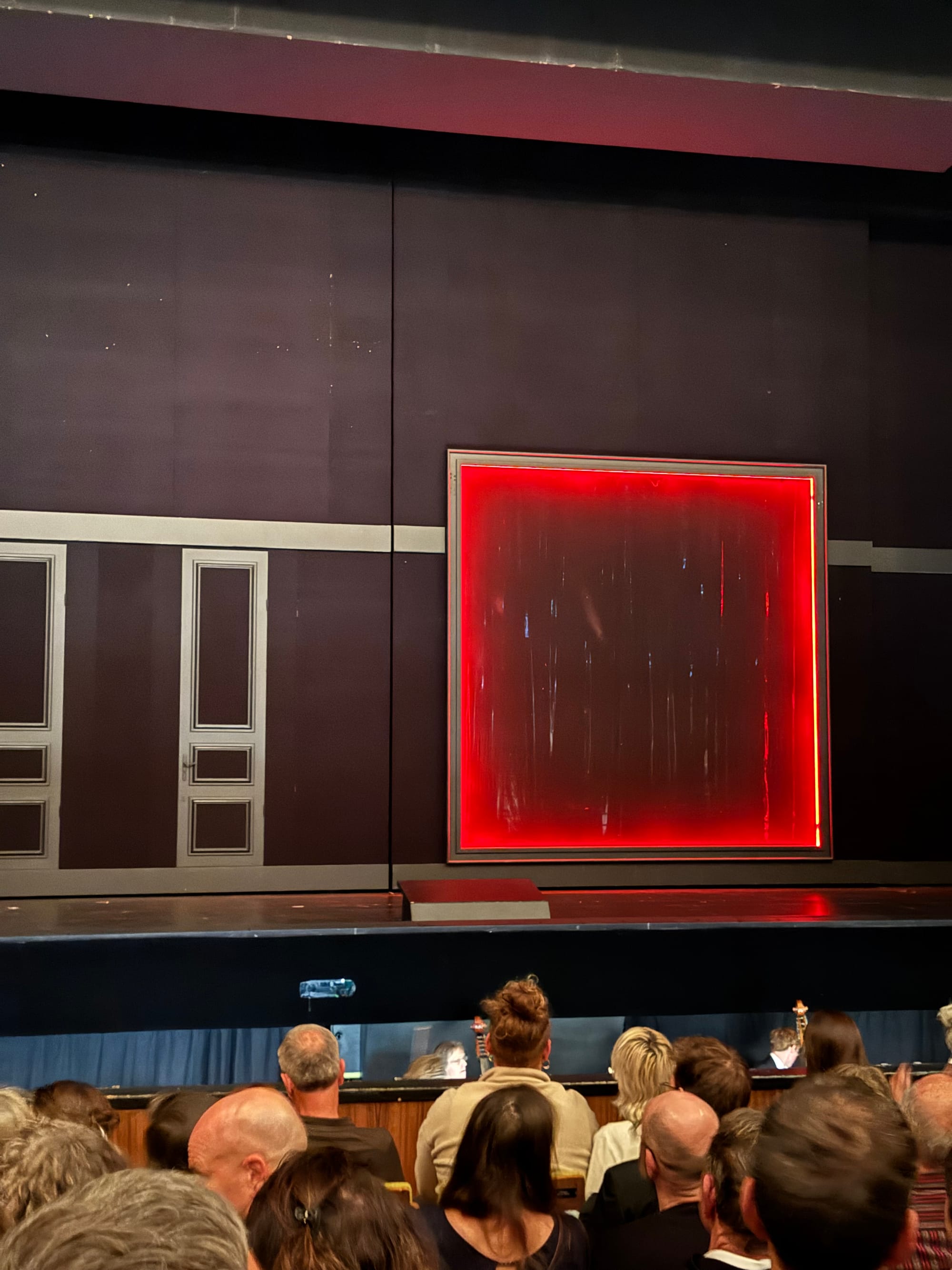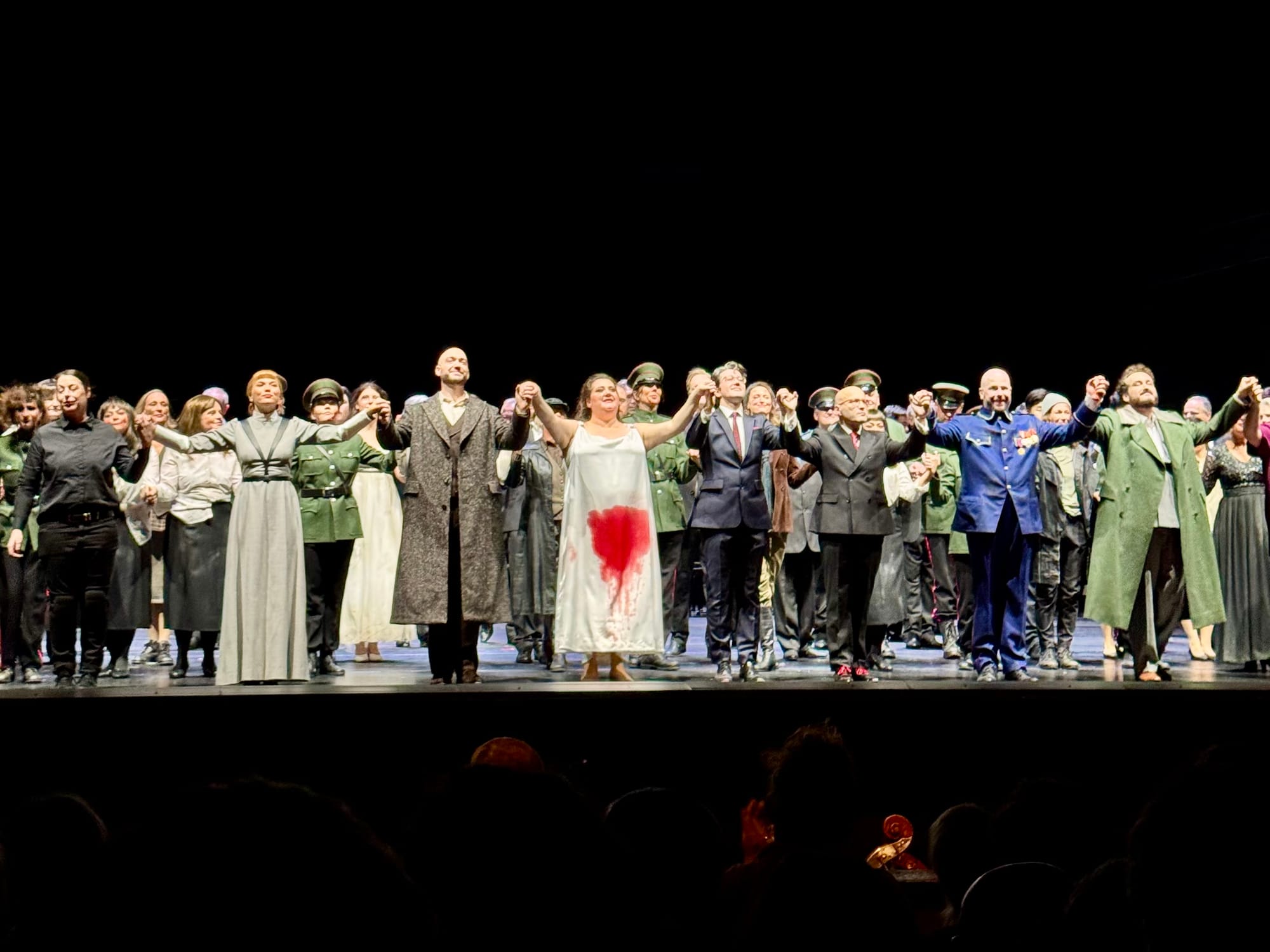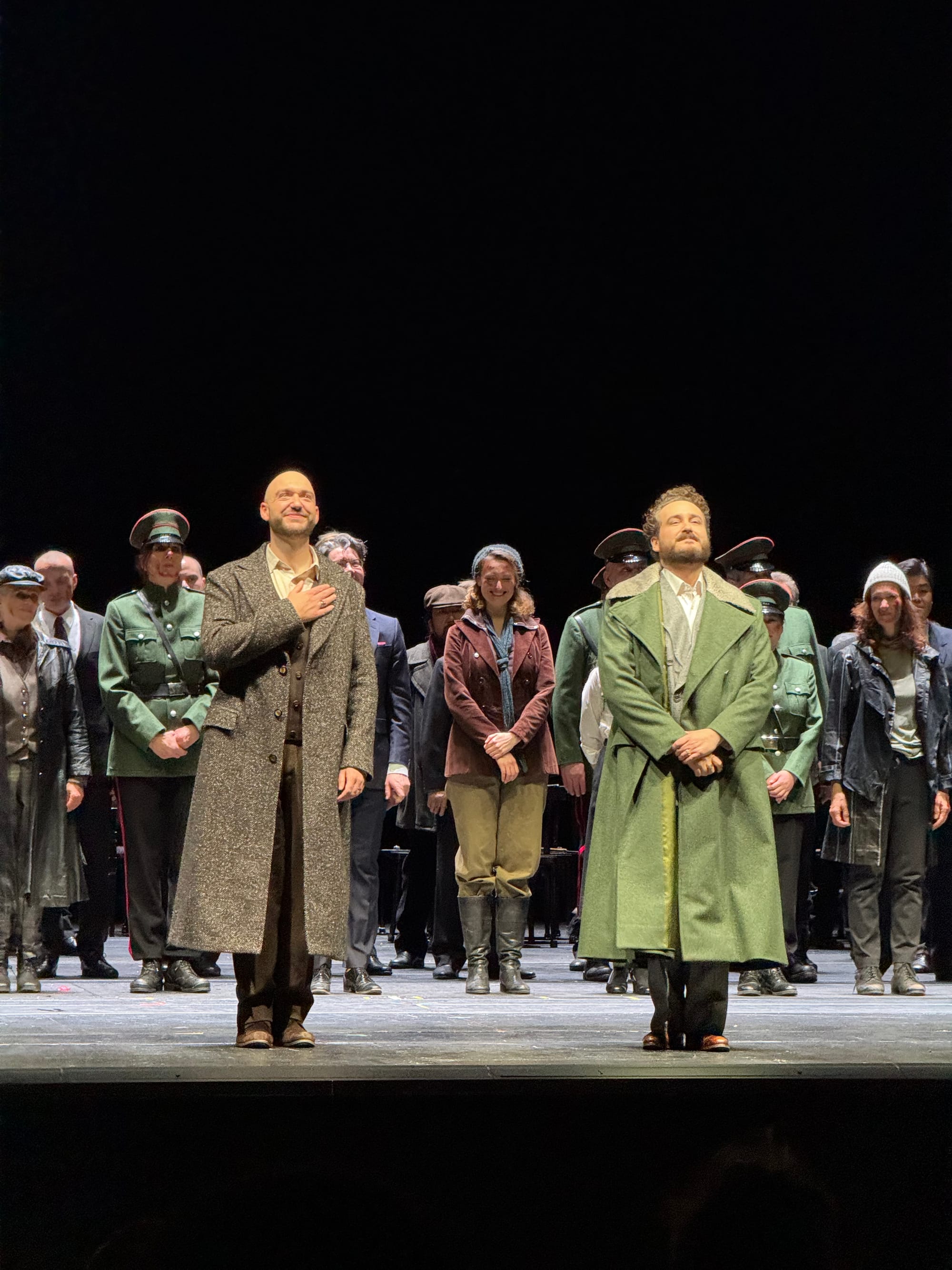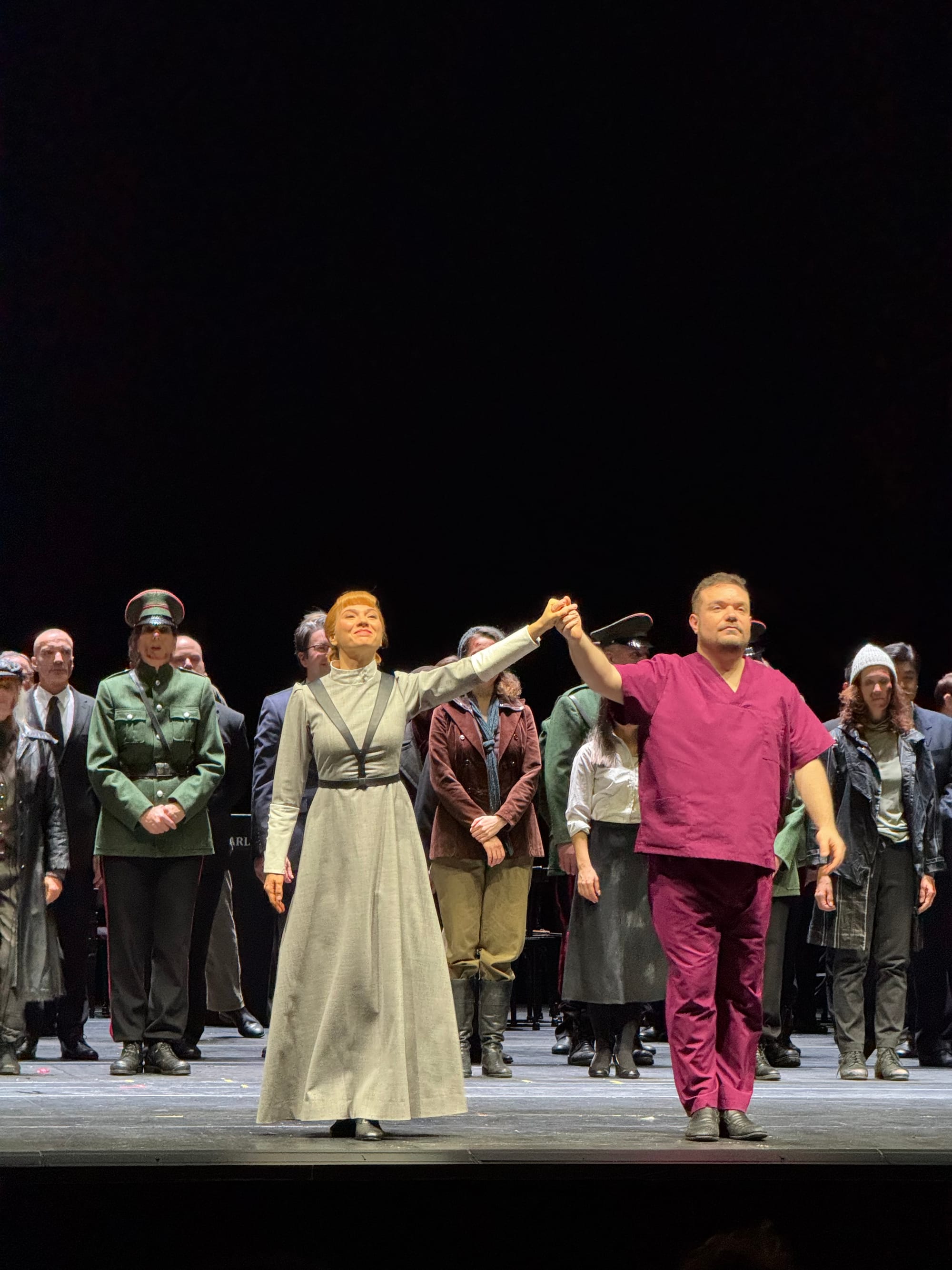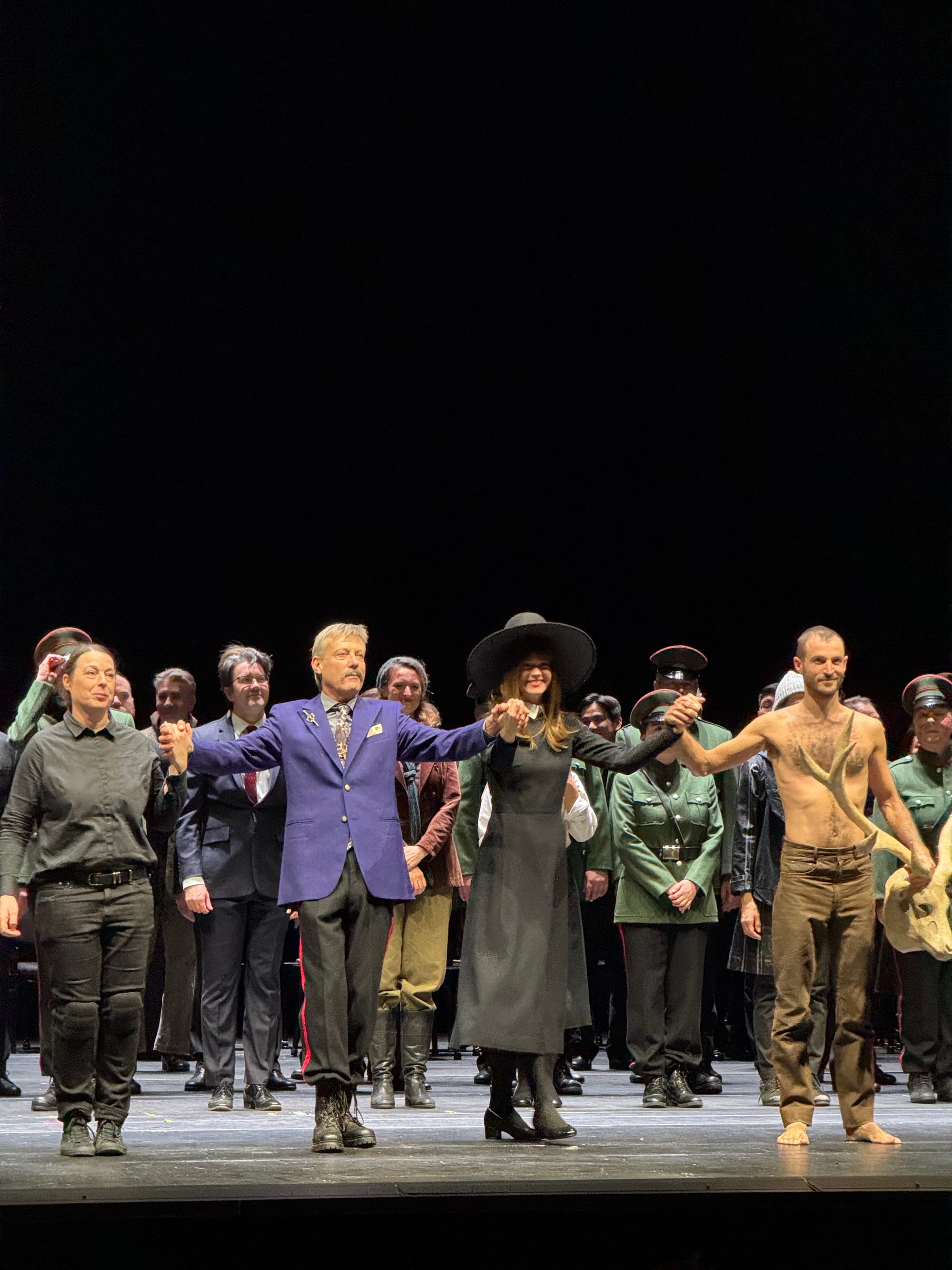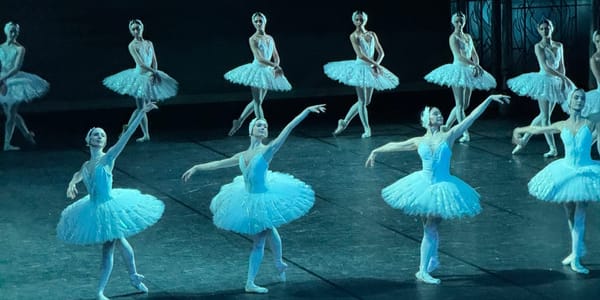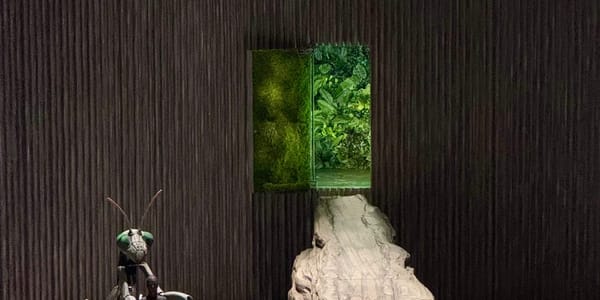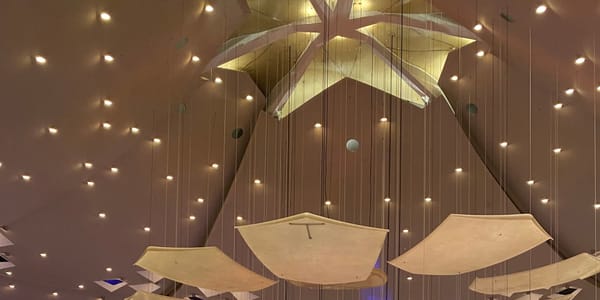Macbeth at Deutsche Oper Berlin
The production doesn’t shy away from brutality in its portrayal of the Macbeths’ relentless climb to power: the violence is disturbingly visceral.
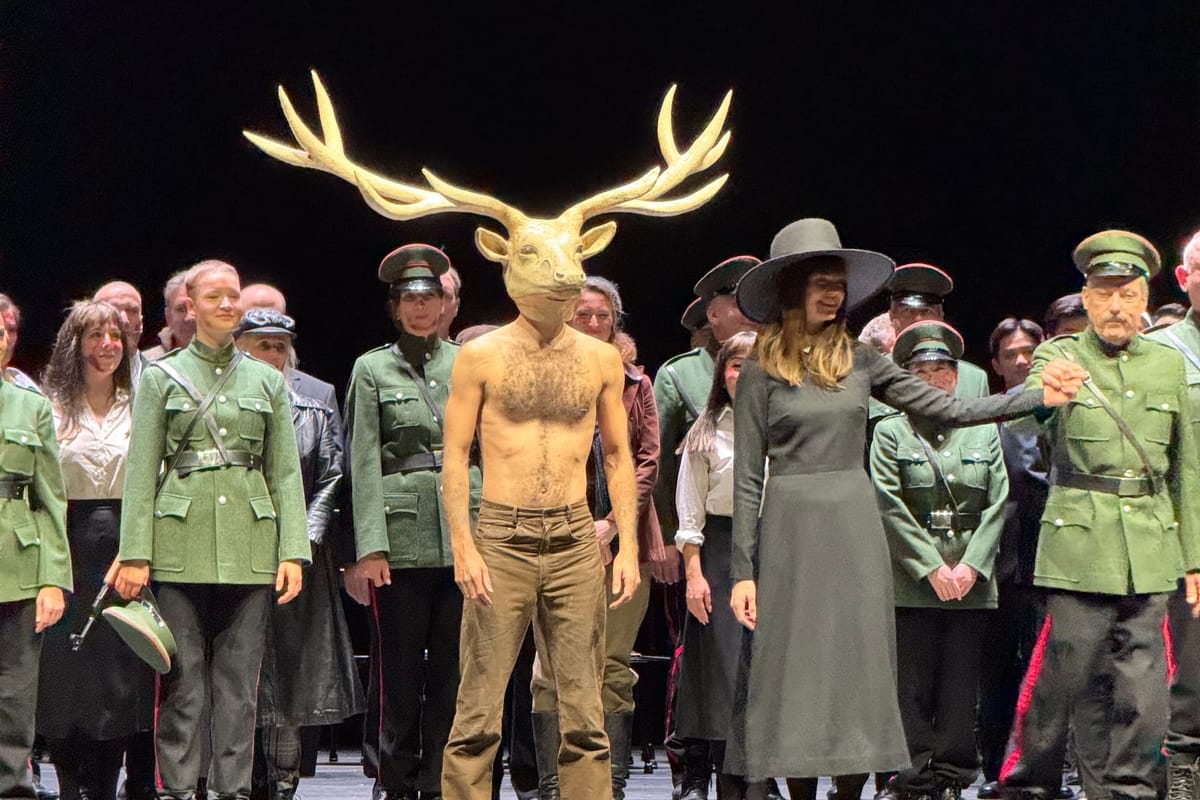
⭐️⭐️⭐️
🎭 Macbeth
🎶 Giuseppe Verdi
💭 Marie-Ève Signeyrole, 2024
🏛️ Deutsche Oper Berlin
🗓️ 30.11.2024
“WHERE AN ACCURSED HAND REIGNS, ONLY THE GUILTY CAN LIVE”
MACBETH at Deutsche Oper Berlin takes on Verdi’s “opera senza amore” with an ambitious staging set in a near-future dystopia. The production situates the Macbeths’ rise and fall within a Scotland newly independent from the UK, victorious after a war for offshore oil reserves. This geopolitical backdrop sets the stage for Verdi’s exploration of ambition, intrigue, and ultimate destruction.
The witches are reimagined as a form of “AI” accompanied by a small army of puritanical laptop monkeys (a self-reference to my daytime office job). Their prophecies—algorithmically generated rather than magically divined—initially offer a strikingly modern take on the opera’s themes of fate and power. The opening video message from the part-human, part-machine “AI” sets high expectations, but fades as the opera progresses, leaving the audience to piece together its significance.
Visually, the production leverages live video projections to add depth onto the onstage action. At times, the camera shows closeups of singers to emphasize their emotiveness; at times it creates layers of simultaneous action by showing a scene unrelated to the immediate musical focus. This creates an engaging, almost stressful FOMO effect: figuring out where exactly to look is a challenging but exciting endeavor.
Beyond the political intrigue, this production adds a second layer of conflict absent from the original story: the Macbeths’ intimate struggle with infertility. During an instrumental interlude, they visit a fertility clinic—Sir M provides a sample while Lady M undergoes in vitro treatment. Later, Lady M‘s pregnancy is revealed but tragically ends in miscarriage, culminating in her appearance, à la Lucia, in a blood-stained white gown. It is even implied that this ultimately leads to her descent into madness and suic!de. In this context, Macduff’s line “How can I get revenge when he doesn’t have children? takes on a new poignancy.
The modular set, made of sliding rooms and walls, provides dynamic possibilities for staging, from adjoining bedrooms to expansive banquet halls. Its versatility shines during moments of supernatural tension, with walls turning transparent under specific lighting or appearing malleable as ghostly figures emerge (think Stranger Things). However, the ambitious design sometimes backfires; noisy set changes and even audible stagehand instructions momentarily break the on-stage tension.
The production doesn’t shy away from brutality in its portrayal of the Macbeths’ relentless climb to power. The violence is disturbingly visceral: a poisoned birthday cake kills child party guests, assassins execute Macduff’s children with point-blank gunshots, and his wife’s throat is slit onstage. The corpses, laid out for the audience to see in chilling detail, emphasize the ruthlessness of the Macbeths’ ambition.
Ironically, while this dystopian world is effective in its depiction of violence, it feels strangely familiar—and therein lies its main shortcoming. In an age of uncensored war footage flooding our social feeds, the production’s shocks fail to provoke those who are chronically online. Similarly, themes of energy crisis and brutal intrigue, though relevant, pale in comparison to the rising tide of (post-)fascism, political repression, police brutality, and state-sponsored xenophobia defining today’s geopolitical landscape (and that‘s just Western democracies!).
Ultimately, this MACBETH raises valid and thought-provoking ideas, but delivering on them proves to be an uphill battle. While the production is emotionally entirely gripping, its sociopolitical commentary doesn‘t quite resonate as intended. This speaks less to Ms. Signeyrole’s direction and more to the numbing reality we inhabit, where the dystopian future envisioned onstage almost pales against the rough present we already experience. In the end, what this MACBETH leaves us with is not a glimpse into a dark, hypothetical tomorrow but a stark reminder of how accustomed we’ve become to the horrors of today.
